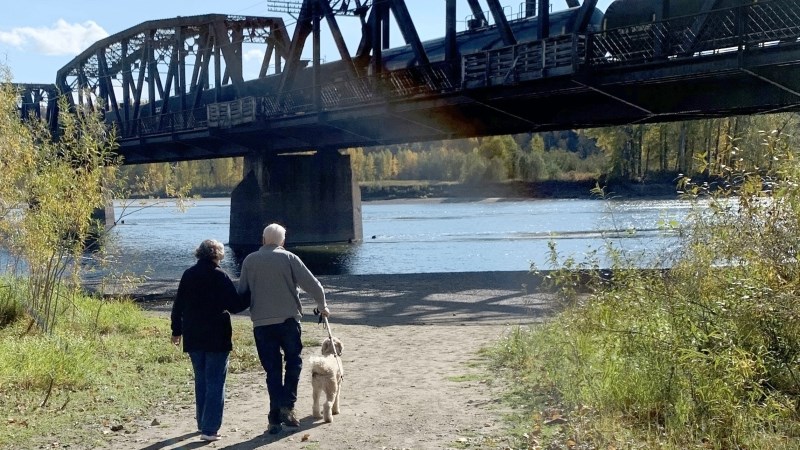UNBC researchers are collaborating on a study to find out what is needed to create neighbourhoods that are more friendly for people living with dementia.
In partnership with Simon Fraser University and the University of British Columbia, the UNBC team is trying to figure out how to create dementia-friendly neighbhourhoods and make it easier for people living with dementia and their caregivers to take part fully and be active in their community.
“To support people living with dementia so they can age with dignity and grace, we need to make it possible for them to continue to participate in activities they find meaningful,” said UNBC nursing professor Shannon Freeman.
“For instance, if they always enjoyed taking their dog for a walk, we want to make sure it’s still possible for them to do so safely.”
The researchers will identify features of neighbourhoods that affect the mobility and participation of people living with dementia and develop an easy-to-use tool to assess environments supportive of people living with dementia. They will also develop guidelines for dementia-inclusive communities that can be used by policymakers, decision-makers, and the public.
UNBC School of Planning and Sustainability professor Mark Groulx is leading the northern component of the research project along with Freeman and project manager Emma Rossnagel.
Throughout the project, Freeman and Groulx will engage with people living with dementia in Prince George and their caregivers to discover what barriers exist in the built environment and what improvements can be made.
“We know it is important for people to be able to enjoy time outdoors, whether it’s exercising or socializing with others,” Groulx says.
“To ensure neighbourhoods are walkable for people living with dementia, we will learn with persons living with dementia and their family or friend care partners here in the northern community what aspects of their neighbourhoods shape use and enjoyment. This could include everything from the presence and condition of sidewalks and benches to the colour and font used in signage.”
As future aspects of the project move toward developing guidelines, Freeman, Groulx, and Rossnagel will be contributing the experience of the northern context.
They will consider how winter weather, existing community supports, and even the presence of wildlife in the community can affect how inclusive a neighbourhood is for people living with dementia.
“Working in partnership with persons living with dementia and their care partners here in the north is critical to ensure the guidelines are relevant to those living and aging in our northern communities,” adds Rossnagel.
The project draws upon UNBC’s interdisciplinary collaboration. As a social gerontologist, Freeman brings expertise in what supports are needed for ageing adults to continue to live at home. Groulx, a planner, researches inclusive, barrier-free design.
“This is community-based research that will have a direct impact on the lives of people in northern British Columbia,” Freeman said.
Simon Fraser University gerontology professor Habib Chaudhury is the principal investigator for the project which is titled Developing Supportive Neighbourhood-Built Environment to Foster Mobility, Engagement and Social Participation among Community-Dwelling Adults Living with Dementia (DemSCAPE).
The Public Health Agency of Canada is also providing $715,801 through the Dementia Strategic Fund to support the research.

.png;w=120;h=113;mode=crop)

